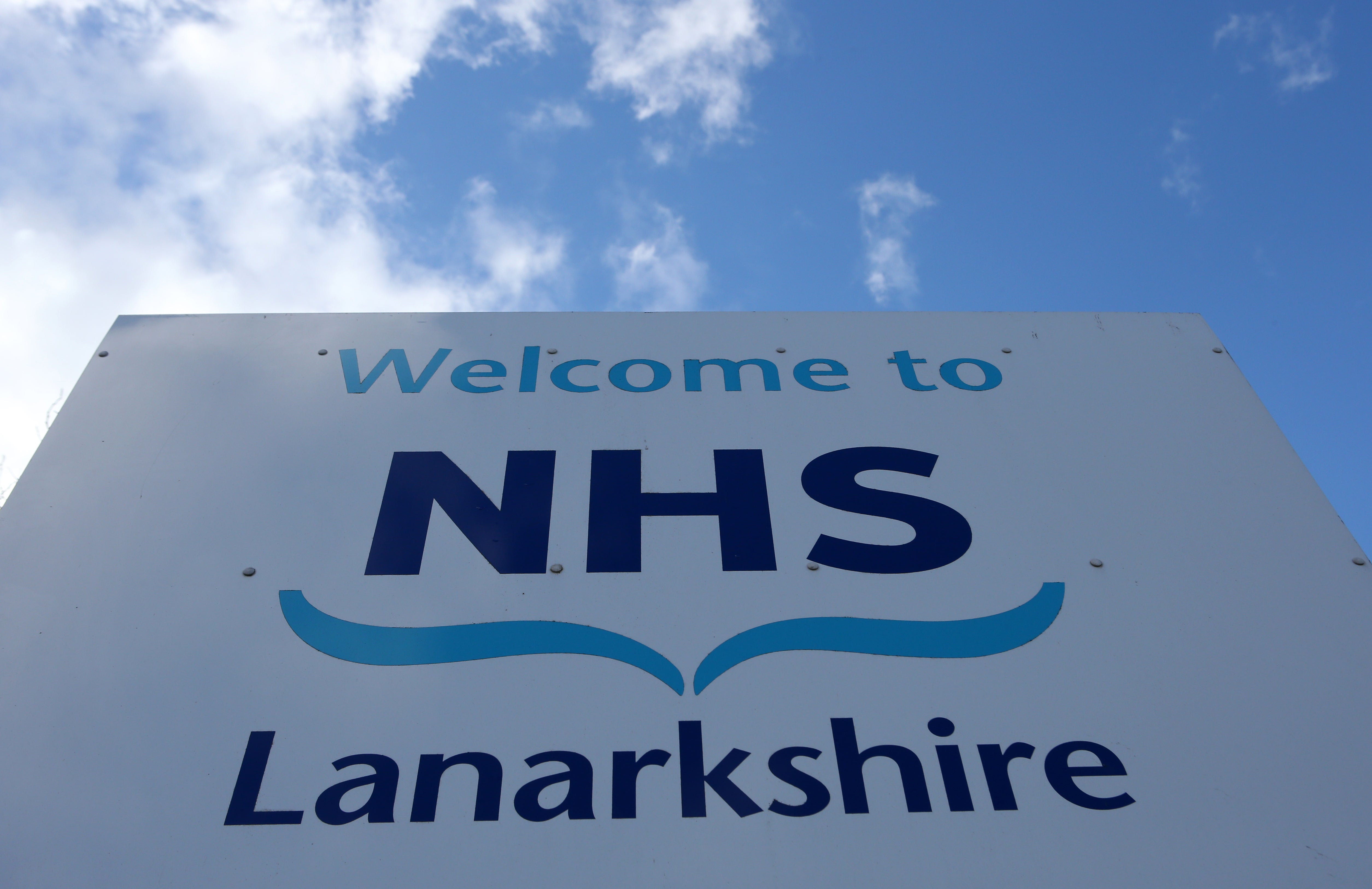Health board reintroduces essential-visits-only policy to ease pressure on staff
The move means that only patients who would face ‘particular distress or suffering’ by missing out on seeing a family member are allowed a visit.

Your support helps us to tell the story
From reproductive rights to climate change to Big Tech, The Independent is on the ground when the story is developing. Whether it's investigating the financials of Elon Musk's pro-Trump PAC or producing our latest documentary, 'The A Word', which shines a light on the American women fighting for reproductive rights, we know how important it is to parse out the facts from the messaging.
At such a critical moment in US history, we need reporters on the ground. Your donation allows us to keep sending journalists to speak to both sides of the story.
The Independent is trusted by Americans across the entire political spectrum. And unlike many other quality news outlets, we choose not to lock Americans out of our reporting and analysis with paywalls. We believe quality journalism should be available to everyone, paid for by those who can afford it.
Your support makes all the difference.A health board in Scotland has reintroduced essential visits only at all of its hospitals and inpatient services.
NHS Lanarkshire said it has enforced the restriction due to pressures on staff amid a surge in Covid cases and staff absences.
Earlier this week the health board announced all GP practices will move to “managed suspension of services”, which means doctors will only focus on the most urgent and time-critical care, a move Scottish Labour MSP Jackie Baillie described as “unprecedented”.
Essential visits, according to the health board, only permit visits to patients where not seeing a family member would “cause particular distress or suffering”.
The restriction is already in place at University Hospital Wishaw but it will now, as of Friday, apply to the region’s remaining hospitals: University Hospital Hairmyres and University Hospital Monklands, its community hospitals and all mental health/learning disability inpatient units.
NHS Lanarkshire nurse director, Susan Friel, said the decision has been made to protect patients and staff, and staff will use their professional judgment to consider when visiting is allowed.
“We understand that patients in hospital are having a challenging time and want to have their family and friends around them for support,” she said.
“Unfortunately, it is our priority to protect our patients and staff as much as is possible and this is why we have made the difficult decision to limit visiting at this time.”
She said the restriction is being reviewed daily and, as soon as the health board decides it is safe, it will expand visiting time by prioritising access for those who are closest to the patient.
“We recognise that essential visits, which only permit visits to patients where not seeing a family member would cause particular distress or suffering, is not ideal, but necessary for the time being.
“We hope everyone will understand that this decision has been made in the best interests of patients, other visitors and our staff.”
Commenting on the health board’s latest restrictions, Ms Baillie took aim at the Scottish Government, saying the SNP must “urgently step up and support NHS Lanarkshire through this historic crisis, as well as delivering a real recovery plan for our NHS”.
We need to get services back on track so these restrictions can be lifted as quickly as possible, or we risk letting loneliness and isolation hinder patient care
She said: “These new rules will come as a significant blow to patients and their loved ones.
“This difficult decision is yet another sign of the immense pressure NHS Lanarkshire is struggling under.
“We need to get services back on track so these restrictions can be lifted as quickly as possible, or we risk letting loneliness and isolation hinder patient care.”
A Scottish Government spokesperson said: “The Health Secretary is in regular contact with NHS Lanarkshire – including multiple times this week – and we continue to support the health board with additional funding and any other support they require.
“However, this is the toughest winter in the existence of the NHS and to help us protect urgent and critical care tough decisions are being taken and will only be in place for however long they are absolutely necessary.
“Our overriding priority throughout the pandemic has been to safeguard and protect patients and staff and we appreciate how difficult it is for families who aren’t able to be with loved ones.”
In response to Ms Baillie’s comments, Health Secretary Humza Yousaf pointed to the government’s “range of measures” it has introduced to support people with Covid to stay at home, including new remote monitoring tools and a new NHS 24 call centre.
He added: “Modelling suggests that infections and associated staff absences due to the coronavirus could peak by mid-January and treating more people who previously may have been admitted to hospital at home with antivirals and suitable support is essential to free up capacity in our hospitals.
“All of this builds on work already under way as part of our £300 million investment in health and care services as part of winter preparations.
“This includes £62 million to specifically enhance care at home services – a national priority alongside the NHS and emergency services.”
In response to high vacancy levels in social care, Mr Yousaf spoke about the Scottish Government’s new scheme which pays entry costs for people joining the sector until March, adding: “We will continue to work closely with our partners to identify all possible ways we can assist the sector to aid recruitment and retention within the workforce – which has been essential to our pandemic response – at this critical time.
“We are in daily contact with every board and monitoring the situation closely and local contingency plans are in place to focus on the redeployment of available clinical and support services staff to essential services.”